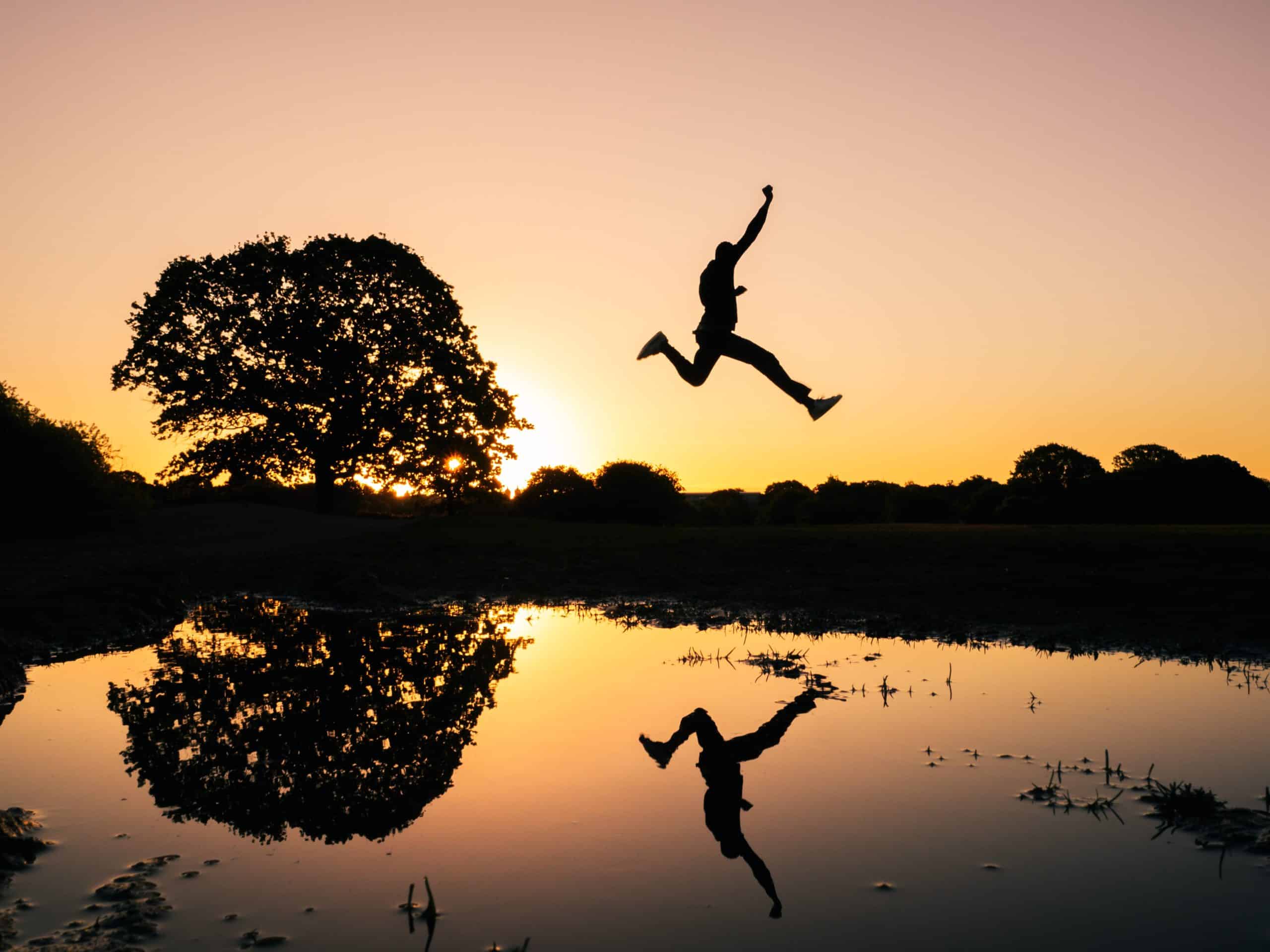Many times, the most terrifying moments boil down to what a Jesuit friend calls “our fundamental life question.” As he explains, we often ask a basic but critical question, usually having to do with love and belonging, and this question is usually unconscious and unspoken. My own fundamental question is some version of: “will they still love me if…” These are the questions that feel like risks and leave us open to the possibility of falling. Here’s a song that has helped me take those leaps over the past few months.
If I fall, will You catch me? // If I get lost, will You find me? // I feel afraid of leaving what’s safe, but I can’t stay here. // If I fall, will You catch me?
If you’ve ever tried walking through a dark room before your eyes have adjusted, you know the feeling of anxiety that comes with taking each step. For me, that feeling often leads to inaction, the freeze response to a perceived threat, like waiting for my eyes to focus in low light.
I had a lot of those moments this past year throughout the Pandemic, asking myself questions like: could going to a store put my whole community at risk? If I try to reconnect with an old friend, will they feel the same way? I realized that I was asking my fundamental question again: Will they still love me if I made a mistake? Will they still love me if I have changed? Will they still love me if they have changed?
If I walk through that doorway // And the look on their faces say I’m crazy // I’m learning that risks feel like mistakes, but isn’t that called faith? // And if I fall, will You catch me?
The thing that makes these moments feel so perilous is the uncertainty. We cannot predict the outcome. Yet these moments also offer us a choice and that extraordinary gift of exercising our free will.
In Ignatian terms, we use the tools of prayerful discernment and seek indifference toward all created things, favoring that which leads us closer to God above all else. Part of Ignatian indifference for me means not acting because of a guaranteed outcome but because of my relationship with God. And relationships always involve risk.
Discernment does not take away that risk, but it can help us work through our anxieties and act anyway. Acting on our discernment is the way we test it out. We place our well-discerned action into the world and wait for a response. In some ways, we are always asking: will this choice result in greater death or life?
And what if the doors all close and lock // And I find out I chased a mirage? // Wondering if I even heard You at all // And what if the cost is high to pay // And I’d rather you take the cup away? // I second guess if the choice I made was worth it.
And, of course, the answer is often: Both. Choices usually involve some type of death: of our ego, of a relationship, of a promising opportunity. The most difficult discernment for me is between two good things, because choosing one means letting the other die. Sometimes I have to let go of things or people I love. Yet for Christians, the promise of new life is always stronger. We do not seek out the pain and suffering involved in death, but we accept them insofar as God invites us into new life. And when we do fall, we trust God to help us back up.
We can borrow another piece of encouragement from the Spiritual Exercises, the method of prayer developed by St. Ignatius which many people experience through a 30-day silent retreat. Several of the contemplations propose that we imagine the whole communion of saints with us at important moments to bring us courage and support.
But what if Heaven is cheering me on? // David’s pleading, “Sing your song” // Mary’s shouting, “Waste it all! // He’s worth it!”
Amidst this supportive community, we can find an answer and gain the confidence to claim that God will catch us. In answer to my fundamental question, these answers often come in the form of small and surprising gestures of love from my communities. It is those moments when I am able to see clearly that a simple text message is God’s answer to me: “yes, they still love you.”
And You will catch me. // You will catch me.
In those kinds of moments, what fundamental questions are you asking? Try taking this question to prayer, and with all the saints surrounding you, listen for an answer. Then the next time you find yourself asking that question, do your best to discern well, and then act. If you involve God in the process, you can’t go wrong. Take the leap, and ask God “will you catch me?”
Oh, say You’ll catch me // I know You’ll catch me // You will catch me
———
Editor’s Note: this article was updated 6:00AM, 1 September, 2021


